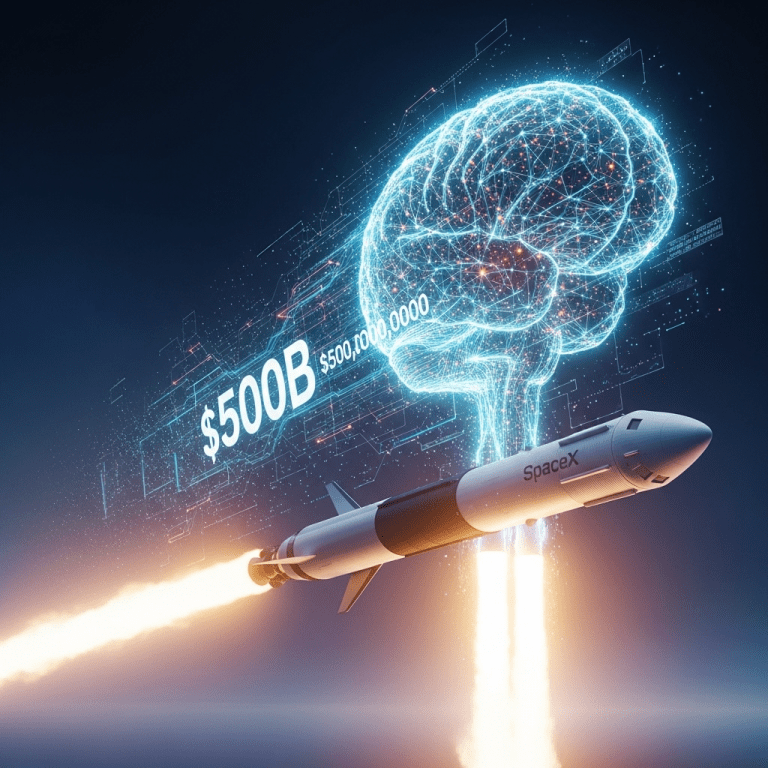In a landmark move for the tech and investment world, OpenAI’s $6.6B secondary share sale gives it record $500B startup valuation, topping SpaceX and redefining what’s possible in startup fundraising. This unprecedented transaction not only positions OpenAI as the world’s most valuable privately-held startup but also signals new power dynamics among global tech unicorns as 2025 unfolds.
Understanding OpenAI’s $6.6B Secondary Share Sale Gives It Record $500B Startup Valuation, Topping SpaceX
The recently finalized $6.6 billion secondary share sale drew keen interest from institutional investors, sovereign wealth funds, and growth equity players eager to stake a claim in the AI revolution. Unlike primary funding rounds, secondary share sales involve the purchase of existing shares from early employees or investors, providing them liquidity while adjusting the company’s valuation based on market demand. This event projected OpenAI’s post-transaction valuation to a staggering $500 billion—surpassing SpaceX’s previous record and signaling a new era in late-stage tech investment.
The Surge in OpenAI’s Valuation: Key Factors and Implications
The jump to a $500 billion startup valuation isn’t mere hype. Several concrete factors converged to drive this dramatic leap:
- AI Maturity: OpenAI’s cutting-edge models like GPT-5 and DALL-E 4 have matured into robust enterprise and consumer platforms, attracting global licensing deals and record-breaking usage rates.
- Monetization Breakthroughs: Strategic partnerships with Fortune 100 companies and the integration of generative AI across industries have unlocked unprecedented recurring revenues.
- FOMO Among Investors: With success stories abounding and transformational impact on sectors like finance, healthcare, and education, investors have rushed to acquire a piece of the action before a potential IPO or next funding wave.
Comparing OpenAI and SpaceX: Shifting the Startup Valuation Paradigm
For years, SpaceX held the crown as the world’s most valuable startup, largely due to its space exploration ambitions and lucrative government contracts. However, OpenAI’s meteoric rise illustrates the market’s confidence in generative AI’s mainstream adoption and scalability. The robust demand for shares in this recent secondary round further validated OpenAI’s dominance over SpaceX, at least from an investor confidence perspective.
The Ripple Effects on Start-Up Life and Unicorn Funding
This record-setting deal is sending shockwaves through the broader startup ecosystem—particularly among late-stage unicorns and those contemplating secondary offerings or direct listings. The high secondary valuation, fueled largely by OpenAI’s business milestones in 2024, may cause other unicorns to reconsider their fundraising and exit strategies. Industry experts at thinkinvest.org note that such a landmark deal is likely to drive up late-stage valuations and intensify competition for coveted AI engineering talent.
What Does This Mean for Early Employees and Investors?
For OpenAI’s early employees and seed investors, this massive secondary share sale translates directly into life-changing liquidity. Instead of waiting for a public offering, they’re able to realize gains and diversify portfolios, setting a precedent for other unicorns as they navigate the volatile late-stage funding landscape.
The Road Ahead: Future IPO Prospects and Market Sentiment
With OpenAI’s valuation now hovering at $500 billion, speculations about a blockbuster IPO in the next 12-18 months have intensified. Analysts believe the company’s unique governance model—a hybrid of nonprofit mission and commercial ambition—will attract further institutional investment but could pose unique challenges in public markets.
This record valuation doesn’t just validate OpenAI’s market strategy; it also hints at broader confidence in AI as the most transformative tech sector of the decade. As other unicorns and investors survey the landscape post-OpenAI, the appetite for innovative, capital-efficient teams remains insatiable. The news arms venture capitalists with fresh data points and may fuel even bolder investment bets in fields such as robotics, quantum AI, and personalized health tech.
Navigating Secondary Market Volatility in 2025
Industry observers caution that the rush to secondary share sales, like OpenAI’s, could inject new volatility into startup valuations. While such liquidity events are a boon for employees, they also attract speculative activity—potentially inflating prices beyond fundamentals if not balanced with transparent reporting and long-term value creation.
For investors and founders alike, advice from leading investment analysts emphasizes the importance of due diligence and aligning on long-term vision, especially as AI continues to accelerate change across business verticals.
Conclusion: A Watershed Moment for Startup Funding
OpenAI’s $6.6B secondary share sale and $500B valuation marks a decisive moment in startup life, cementing AI’s dominance and fueling a new era of unicorn investment. With SpaceX dethroned and the pace of innovation quickening, founders, employees, and investors will be watching closely as 2025 unfolds. As OpenAI sets the pace for the next generation of tech giants, the ripple effects will be felt far beyond Silicon Valley—shaping how startups fund their dreams and how the world adapts to the ongoing AI revolution.









